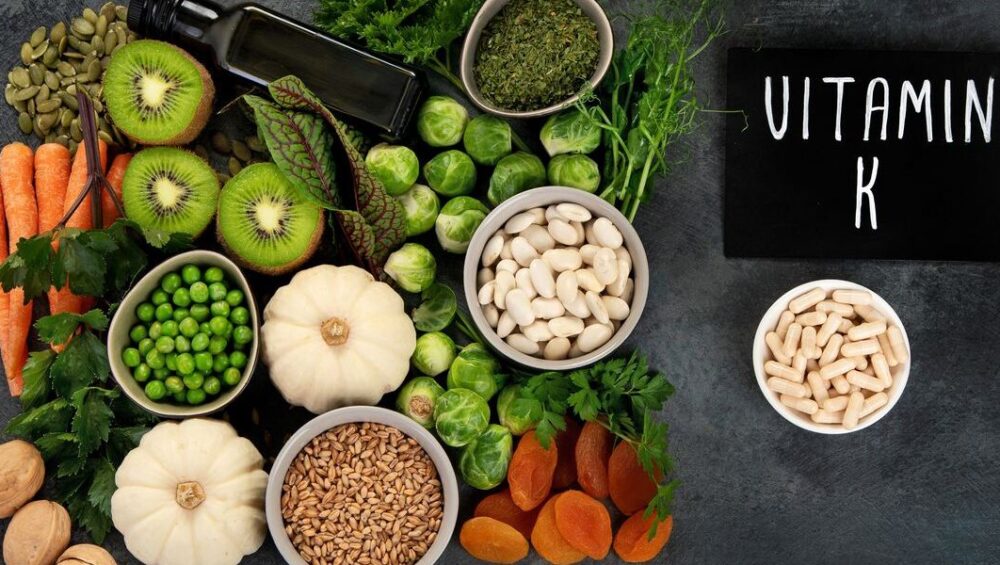Ready to delve into the world of Vitamin K-rich foods? We’re about to explore the top contenders and uncover the numerous benefits they offer, along with addressing some frequently asked questions.
- Leafy Greens: Think kale, spinach, and Swiss chard. These vibrant greens are not only delicious but also packed with Vitamin K, promoting healthy blood clotting and bone metabolism.
- Cruciferous Vegetables: Broccoli, Brussels sprouts, and cabbage are among the cruciferous veggies that boast significant amounts of Vitamin K. Incorporating them into your diet supports optimal blood coagulation and may even reduce the risk of certain cancers.
- Herbs: Fresh herbs like parsley, basil, and cilantro not only enhance the flavor of your dishes but also contribute to your daily intake of Vitamin K. These culinary delights offer a myriad of health benefits, including improved bone health and cardiovascular function.
- Natto: A traditional Japanese dish made from fermented soybeans, natto is a powerhouse of nutrients, including Vitamin K2. Consuming natto regularly may aid in maintaining strong bones and promoting heart health.
- Fermented Foods: Sauerkraut, kimchi, and pickles are examples of fermented foods rich in Vitamin K. Apart from aiding digestion and gut health, these tangy delights provide a substantial dose of this essential vitamin.
Now, let’s address some common questions regarding Vitamin K:
Q: Why is Vitamin K important? A: Vitamin K plays a crucial role in blood clotting, bone metabolism, and cardiovascular health. It helps in the synthesis of proteins necessary for these functions, ensuring overall wellbeing.
Q: Can I get enough Vitamin K from supplements alone? A: While supplements can be helpful, it’s always best to obtain nutrients from whole foods whenever possible. A balanced diet rich in Vitamin K-containing foods ensures you receive not only the vitamin itself but also other essential nutrients and fiber.
Q: Are there any risks associated with consuming too much Vitamin K? A: Generally, Vitamin K is considered safe, even in high doses. However, individuals taking blood-thinning medications should monitor their intake, as Vitamin K can interfere with these drugs’ effectiveness.
Q: How can I incorporate Vitamin K-rich foods into my diet? A: You can easily incorporate these foods into your meals by adding leafy greens to salads, stir-fries, or smoothies, using fresh herbs as garnishes or in sauces, enjoying fermented foods as side dishes or snacks, and exploring traditional dishes like natto for a nutritional boost.
By embracing these Vitamin K-rich foods, you’re not only enhancing your culinary experiences but also nurturing your body with essential nutrients for optimal health.












0 Comments
This is exactly what i was looking for, thank you so much for these tutorials
It would be great to try this theme for my businesses
What a nice article. It keeps me reading more and more!